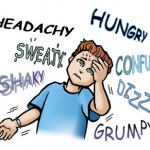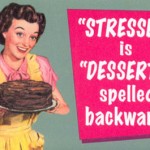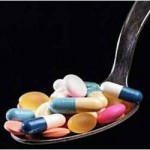Why do people with low blood sugar avoid eating sugar? My Neurobiology professor, Shawn Murphy, M.D., PhD, offered a really simple explanation in today’s lecture: It’s all about how insulin (a hormone produced at the pancreas) responds to sugar. Typically, …
You Say, But God Says…
The following was originally posted on BearHugsForJesus: You say: “It’s impossible” God says: All things are possible – Luke 18:27 You say: “I’m too tired” God says: I will give you rest – Mat.11:28-30 You say: “Nobody really loves me” …
Stress Helps Confident Students, Hurts Anxious Peers
Recent research by Sian Beilock, associate professor in psychology at the University of Chicago, establishes a clear relationship between working memory, math anxiety and salivary cortisol. According to Beilock, “We found that cortisol, a hormone released in response to stress, …
Positive Psychology: Happiness and Flow States
As Kay Cahill Allison explains in her article, “The Power of Positve Psychology: Finding Happiness in a Cold Ocean Stream” (featured on Harvard’s Health Blog), experts have found that people often guess wrong about what will bring them happiness. However, …
Exercise and Cognitive Function Studies
The following studies, ranging from 2006 to 2011, examine the relationship between exercise and cognitive function. Enjoy! A 30-minute physical education program improves students’ executive function (2009) A neuroimaging investigation of the association between aerobic fitness, hippocampal volume, and memory …
Antidepressants: Possible Link to Heart Disease and Stroke
Citing a study set to be presented at the American College of Cardiology meeting in New Orleans on April 5, Science Daily reports that “antidepressant use has been linked to thicker arteries, possibly contributing to the risk of heart disease …
- « Previous Page
- 1
- …
- 23
- 24
- 25
- 26
- 27
- …
- 29
- Next Page »







